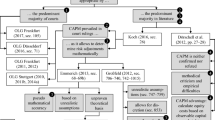Abstract
This is the second paper in a two-part series on value capture South Africa. Value capture is a broad term used to describe the process of extracting the additional value that accrues to a property following specific public investment. As the increased value results from public action, the value capture is usually undertaken by a public agency to bring about or pay for a public purpose. The value capture process comprises four key elements, namely, the creation of the value, the calculation of the additional value created, the capturing of this value and finally the use of the funds resulting from the captured value. While the previous paper addressed the first two components, this paper focuses on the last two, namely the capture and use of value in the current legal context. The paper concludes that legally, value capture is possible in South Africa, but that the legislation is vague and inconsistent at times. Furthermore, the paper finds that value capture is most successful when the policy objectives are clear, the mechanisms are correctly defined, favourable market conditions prevail and solid administrative systems are in place.
Similar content being viewed by others
References
African Development Economic Consultants (ADEC) (2010) Value capture from Transit-Oriented Development and other transport interchanges. Urban LandMark. Accessed at www.urbanlandmark.org.za, July 2012
Brown-Luthango, M. (2011). Capturing land value increment to finance infrastructure investment—possibilities for South Africa. Urban Forum, 22, 37–52.
Cervero, R., & Murakami, J. (2009). Rail and property development in Hong Kong: experiences and extensions. Urban Studies, 46, 2019–2043.
Debrezion, G., Pels, E., & Rietveld, P. (2007). The impact of railway stations on residential and commercial property value: a meta-analysis. Journal of Real Estate Finance and Economics, 35, 161–180.
Hendricks, M., & Tonkin, A. (2010). Land value capture taxation (LVC/T) scoping study—final report. UN-Habitat/Global Land Tool Network/Development Action Group.
Hickey-Tshangana, A. (2011). The legislative and policy context for the application of value capture mechanisms by municipalities. Urban LandMark.
Huxley, J. (2012). Value capture finance—making urban development pay its way. London: Urban Land Institute.
Khodabacus, A., Nduka, E., & Whitaker, G. (2011). The legislative and policy implications of implementing value capture mechanisms in the City of Cape Town. Unpublished Honours Research Report. Department of Construction Economics and Management. University of Cape Town.
McGaffin, R., & Gavera, L. (2010). Taking stock: the development of retail centres in emerging economy areas. Urban LandMark. Accessed at www.urbanlandmark.org.za, July 2012.
National Treasury Republic of South Africa (2011). Local government Budgets and expenditure review: 2006/2007–2012/2013. www.treasury.gov.za.
National Treasury Republic of South Africa (2010). Policy Framework for Municipal Development Charges. Draft for Consultation. Version 6.
Obermeyer, E. (2011). National Treasury internal position paper for the development of guidelines on the imposition, amendment and appropriate application of levies, user-charges and administrative fees. National Treasury: Tax Policy Unit.
Republic of South Africa Government Gazette—The Constitution of the Republic of South Africa (108 of 1996). Gazetted December 1996.
Republic of South Africa Government Gazette—Public Finance Management Act (29 of 1999). Gazetted April 1999.
Republic of South Africa Government Gazette—Local Government: Municipal Systems Act (32 of 2000). Gazetted November 2000.
Republic of South Africa Government Gazette—Local Government: Municipal Finance Management Act (56 of 2003). Gazetted February 2004.
Republic of South Africa Government Gazette—Local Government: Municipal Property Rates Act (6 of 2004). Gazetted October 2006.
Republic of South Africa Government Gazette—National Land Transport Act (5 of 2009). Gazetted April 2009.
Republic of South Africa Government Gazette—Municipal Fiscal Powers and Functions Act (12 of 2007). Gazetted May 2011.
Republic of South Africa Government Gazette—Department of Rural Development and Land Reform. Spatial Planning and Land Use Management Bill (B-2011). Gazetted May 2011.
Republic of South Africa Government - State of the Nation Speech 2013. www.info.gov.za. Accessed Aug 2013
RICS (2002). Land value and public transport, Royal Institute of Chartered Surveyors and the Office of the Deputy Prime Minister commissioned ATIS REAL Weatheralls and the University College London, www.rics.org/downloads/static/land_value.pdf.
Rodriguez, D., & Mojica, C. (2008). Land value impacts of Bus Rapid Transit—the case of Bogota's Transmilenio, Land Lines, April, 2–8. Lincoln Institute of Land Policy.
Savage, D. (2009). Evaluating the performance of development charges in financing municipal infrastructure investment. Discussion Paper: Second Draft—23 March 2009. Prepared for the World Bank.
Acknowledgments
This paper is based on research commissioned by the Urban Land Markets Programme Southern Africa, which was supported by UKaid.
This work is supported by Mistra Urban Futures, a global research and knowledge center in sustainable urban development, funded by the Swedish International Development Agenday (SIDA) and the Mistra Foundation for Strategic Development.
Author information
Authors and Affiliations
Corresponding author
Rights and permissions
About this article
Cite this article
McGaffin, R., Napier, M. & Gavera, L. Value Capture in South Africa—Conditions for their Successful Use in the Current Legal Context. Urban Forum 25, 375–387 (2014). https://doi.org/10.1007/s12132-013-9211-3
Published:
Issue Date:
DOI: https://doi.org/10.1007/s12132-013-9211-3




